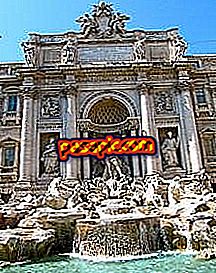Main differences between Athens and Sparta

In the history of Ancient Greece, there were two major cities that were great rivals for having great differences when it came to organizing and managing the territory. We talked about Athens and Sparta, cities that were very close geographically speaking but that were far apart ideologically and politically. These two cities of Ancient Greece were two different models of evolution and social development ; On the one hand, Athens was a democratic society and that opted for trade and the arts, on the other hand, Sparta, was a state of military chalice where there was a clear ruling class that was imposed on the rest. In this article we are going to discover the main differences between Athens and Sparta so that you know in depth the characteristics of both cities and, thus, discover our ancient history better.
Sparta: characteristics
Before starting to enter fully into the main differences between Athens and Sparta it is important that we know the characteristics of each of these cities, so, we will begin by analyzing the city of Sparta to discover how it was organized internally.
Social organization of Sparta
In Sparta there was a great social differentiation and, in the highest part of the hierarchy, were the Spartans (that is, the upper class), in the middle area were the Periecos (who were the merchants, farmers, etc.). and, finally, in the lowest rank were the Ilotas, that is, the slaves.
The objective that education had in Sparta was very oriented to strengthen its army, for that reason, since the infants were 7 years old, these belonged to the state and they were beginning to instruct as much in the physical, moral and intellectual education. At 17 they were ready to enter the army, a job they had to complete until they were 60 years old or until the end of their days.
Political organization of Sparta
The government that commanded in the land of Sparta was aristocratic, that is to say, only the nobles could ascend to the systems of organization. Power and wealth were very badly distributed and, in fact, all the lands of the city were state property, something that accentuated the inequality between the classes because it did not allow the less favored ones to get rich thanks to their work.
The army of Sparta
To speak of the ancient city of Sparta is to speak of its army since it was the best of all the Greek Empire, by far. As we have already mentioned, the Spartan social organization was totally aimed at swelling the military corps and, therefore, more and more soldiers were in charge of occupying new territories.
In this article you can find a detail of Ancient Greece and its cities so you can better know how this important Empire of Antiquity was divided.

Athens: characteristics of ancient civilization
To understand the differences between Athens and Sparta it is important that we also know the characteristics of the city of Athens as it was a social and political model of great influence and, in fact, it is considered that this civilization was the cradle of modern democracy. We are going to analyze the most outstanding points of the Athenian society so that you can know it in depth.
Athens social organization
Unlike the city of Sparta, in Athens there was a wider variety in the hierarchy and, therefore, power and wealth was better distributed among citizens. The social division of the Athenians was the following:
- Citizens (most of the Athenians)
- Gentlemen
- Zeugitas (the farmers)
- Tetes (they were day laborers and were exempt from paying taxes)
- Foreigners (foreign merchants who resided in Athens for business reasons)
- Slaves (prisoners of war)
The education of men in Athens was destined to cultivate free and intellectually rich men . For that reason, it was betting on an education that began at age 4 and lasted until age 18 where mental and physical exercises were performed to try to create the "perfect" man.
Political organization of Athens
In Athens, the lower classes were favored and, therefore, the State gave the land to the peasants so that they could exercise their work and enrich themselves slightly. In addition, in Athens slavery could also be abolished if a "fine" was paid, thus individual freedom could be paid.
Economically, Athens protected trade, the arts and industry as transforming vehicles of society that made its citizens more free, educated and economically independent.
The power and influence of Athens in the Ancient world was very noticeable. In fact, after the war waged against the Persians, this city became the center of the Greek Empire . The main economic engine was the market and commerce, although the mythological religion was also cultivated, creating spaces such as the Parthenon of Athens, one of the most spectacular temples in the world.
Democracy in Athens
However, one of the most significant characteristics of ancient Athens was its democratic government, the first in the history of mankind . The concept of democracy was perfected by a leader called Cleisthenes who raffled political positions among members of the citizenship, however, we should not believe that it was a democracy like today but that it was the beginning of this system that today is found in most Western countries.
Differences between Athens and Sparta
We have already analyzed the characteristics of both cities and, therefore, the time has come to enter into what concerns us: the main differences between Athens and Sparta . We are going to make a list so that the divergences between these Greek cities can be perfectly clear:
- The society of Sparta was very hierarchical and there was a great difference between rich and poor; in Athens there was much more variety of social classes and the differences between the most affluent and the most disadvantaged were smoothed
- Education in Sparta was basically aimed at creating great military that could swell the military ranks; On the other hand, in Athens, studies were designed to create an ideal citizen who was skilled in both letters and weapons
- The political organization of Sparta was totally subordinated to the groups of the aristrocracy; in Athens, however, began with democracy, a new system of political organization that sought to create equality among citizens


